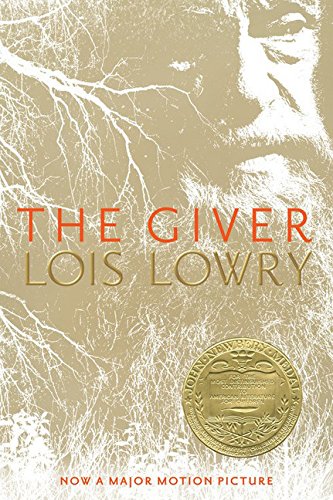All Nonfiction
- Bullying
- Books
- Academic
- Author Interviews
- Celebrity interviews
- College Articles
- College Essays
- Educator of the Year
- Heroes
- Interviews
- Memoir
- Personal Experience
- Sports
- Travel & Culture
All Opinions
- Bullying
- Current Events / Politics
- Discrimination
- Drugs / Alcohol / Smoking
- Entertainment / Celebrities
- Environment
- Love / Relationships
- Movies / Music / TV
- Pop Culture / Trends
- School / College
- Social Issues / Civics
- Spirituality / Religion
- Sports / Hobbies
All Hot Topics
- Bullying
- Community Service
- Environment
- Health
- Letters to the Editor
- Pride & Prejudice
- What Matters
- Back
Summer Guide
- Program Links
- Program Reviews
- Back
College Guide
- College Links
- College Reviews
- College Essays
- College Articles
- Back
The Giver by Lois Lowry
Memories. What would we be without them? It is our memories that define who we are, as people, but also as a society. What if all memories were held by only one person? What if you were that person? You would have more knowledge and understanding of the world than anyone else, but you would also have great responsibility that you shared with no one. After a while would this responsibility start to become a burden?
The Giver, a 1993 novel by Lois Lowry answers these questions and raises many more. It is the story of a post-apocalyptic community where there are no memories. Calling attention to people's differences is considered very rude. Children are born of designated birth-mothers. They are assigned parents, and later jobs, spouses, and children of their own. When they grow old they will be lethally injected, or “released” from the community. Release is also used on unhealthy babies and criminals. Food is delivered three times a day to every dwelling place in the community. Clean-up crews collect the leftovers. Painkillers are are immediately on hand for even the most minor injuries. No one has to worry about anything. All citizens of the community take pills that dull their strong emotions.
The only exception to this sameness is the community's Receiver, a person who holds all the memories the rest of the community does not have; memories of things like sunshine and snow, pain and war, elephants and hills, that do not exist in the rest of the community. This thought-provoking story follows the new Receiver-in-training, a boy named Jonas, for just over a year of his life. In this year Jonas learns about the world beyond his community through memories transferred to him from the old Receiver. These memories give him a greater understanding not only of himself, but also of the people around him; and lead him to make a decision that will shake their well-ordered world to its symmetrical foundations.
I loved this book. It made me think about and appreciate both the negative and positive aspects of the society in which I live. Though I have no desire whatsoever to live in a society as rigid and restrictive as Jonas's, it does have a certain appeal. Their are no stereotypes, prejudices, or social conflicts of any kind. Everyone respects everyone else. However, upon closer investigation you discover this is because there are no social differences. I do not think we should ever give up our diversity to avoid social conflict. When we lose our differences we lose the uniqueness that makes us individual people who are happy, sad, worried, tired or energetic; who love, hate, laugh, cry, smile and enjoy life. We become one huge feeling-less machine that will limit, if not destroy, creative energy forever. Besides, solving social conflicts and learning to live with our differences make our society stronger as a whole.
Jonas's society also holds appeal in that everything is decided for you. There is no need to worry about anything. However, our decisions, like our differences, define us. Though at some points in my life I will make wrong decisions, I would not give up the freedom to make them for all the world. You cannot learn from your mistakes when there are no mistakes.
The Giver by Lois Lowry is definitely worth the read. The writing is rich, enjoyable and satisfying, yet has a soft, gentle feel. Lowry describes complex situations and concepts with grace and apparent ease. All the characters, ever the minor ones, are very much individuals, with interesting and realistic personalities that make you feel as though you know them. Most importantly, The Giver makes you think; about society, people, relationships, and what is really important in life. It is a book everyone should read at some point in their life.
Similar Articles
JOIN THE DISCUSSION
This article has 0 comments.

